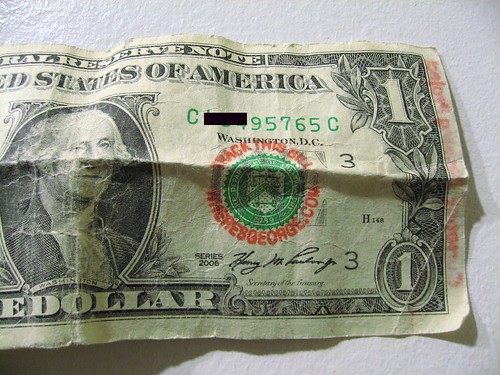Here's Help With Your Personal Bankruptcy Needs
If you are facing repossession from the Internal Revenue Service, you may feel like you should panic. Don't worry because you will not be homeless or penniless, just because you file for personal bankruptcy. Read the tips in this article, if you would like to learn more about how to file a claim.

Keep your debts to a minimum prior to filing. If you are planning on filing for bankruptcy, don't run up your debts. Your recent history will be checked by judges and creditors, and if it is deemed that you are trying to cheat the system, you may not be able to wipe out those debts. You will be viewed most favorably, if you can demonstrate that you have changed your spending habits.
Hire a lawyer. Filing for bankruptcy does not require a lawyer, but a lawyer makes the process easier. It allows you some degree of relief to know, that a professional will be handling your case. Take your time, and choose a lawyer with a lot of experience in the field.
Don't charge up your credit cards knowing you are going to file bankruptcy, if you have already started the process or made recent purchases for luxury items. While this type of purchasing is still part of your "debt,' it is likely that you'll still be responsible for repaying the money for those items. In most cases, what you are attempting to do is obvious.
See what you can find out. Each state does have varying laws on the subject of bankruptcy. Because of this, it is important that you meet with a specialized lawyer to discuss whether bankruptcy is right for you or if an alternative is better such as http://bankruptcyx.com/. Generally, initial consultations are free to you so you are able to determine which path you should head down at no cost.
You must be absolutely honest when filing for personal bankruptcy. If you try to hide any of your information, it will eventually surface and cause you problems. Whomever you use to file with must know everything there is to know about your finances, both good and bad. Put everything out on the table and craft a wise plan for handling the situation the best you can.
Don't think of bankruptcy as the ruination of your financial future. Once your bankruptcy has been discharged, you can begin to work on re-building your credit right away. By continuing to make timely monthly payments and not applying for new credit, you can significantly raise your credit score within 6 months. And, if you maintain good credit for that amount of time, you may find it possible to get approval for loans to make large purchases, such as a home or car.
Before meeting with a lawyer, start compiling all of the documentation and paperwork you will need to provide an accurate picture of your finances. Gather six months' worth of pay stubs, bank statements, bills and credit card statements. Create a list of property and assets that you own. Having this entire information ready from the beginning can save you trouble when it's time to file.
There are bankruptcy attorneys that are solely responsible for finding out laws associated with this sort of claim. Not everyone who files for bankruptcy is irresponsible or poor, so do not feel bad! Remember the tips in this article, so you know how to handle this situation with your head held high.
=================================================================================================
Here's Help With Your Personal Bankruptcy Needs
Are your debts out of control and you think that your only escape is bankruptcy? Don't feel bad, you are in good company. Some people have turned to bankruptcy, as it is their only option for getting rid of a bad financial situation. The piece that follows includes useful ideas for ensuring that the bankruptcy process goes as smoothly as possible.

Bankruptcy is a very complicated, and scary process. Usually anyone who applies for it, is at the end of ones rope. To help you feel more in control of things, be sure to educate yourself about the entire process before making your decision. Learn the requirements you have to meet before applying.Learn about what the process will be when you do apply.Finally, learn how your future will be affected by it after you file.
Trying to exclude family members you owe money to before filing for personal bankruptcy can get you into serious hot water. The court will look into who you pay-off as far as a year back, and if they find you showing favor to family over other creditors, they could invalidate your filing completely.
Don't be afraid to apply for credit for purchases such as a new home or car just because you have a recently discharged bankruptcy. Many lenders will take your new financial situation into account. They may be more likely to loan money to someone who has no debt due to a bankruptcy than to the person with, say, 75,000 dollars in credit card debt. The fact that you have no monthly credit card payments can make you look like a better risk.
Consider hiring an attorney who specializes in personal bankruptcy. Although most states allow you to file for bankruptcy without a lawyer, your case could be dismissed if you don't fill out your paperwork correctly, and you may need to file additional motions to protect your property or discharge certain debts. A bankruptcy attorney can help ensure that you get the outcome you hope for when you file.
A useful tip for those thinking about using personal bankruptcy as a way out of their financial difficulties is to exercise great care when choosing an attorney. By selecting a practitioner who specializes in bankruptcy and who has handled a large number of such cases, it is possible to ensure the very best outcome and the greatest likelihood of forging a positive financial future.
Make sure you have a solid understanding of which debts can be eliminated by bankruptcy, and which ones cannot. Debts like student loans, child support or alimony payments, and taxes, are generally not discharged through bankruptcy. Bankruptcy can help if your wages are being garnished or if you have large unsecured debts, like, credit cards and utility bills.
As mentioned previously, countless others have also experienced financial problems that have driven them to bankruptcy. But since reading this article, you now have information that others don't have. Apply the knowledge from this article to go about your bankruptcy in a smooth fashion.
=================================================================================================
Bankruptcy: What To Consider When Filing
All too often, people find themselves in financial difficulties for one reason or another. One solution that they may consider is filing for personal bankruptcy. Anyone who is contemplating this step needs to know some important information before they make their decision. This article will provide that information.

Since filing for bankruptcy is quite a complicated process, it is recommended that you find yourself a lawyer that specializes in bankruptcy. There is usually some sort of a fee associated with hiring one though. However, if you can not afford one, you should still look into one since there are organizations that could help you out with the cost of one.
If you are sure that you are going to file for bankruptcy, you should stop making any payments towards debts, that will be discharged during the bankruptcy process. Since you will not be liable for these debts in the near future, it is of little benefit to you to keep making payments towards them. It would be more beneficial for you to save any spare cash, that you have for future needs.
Knowing that you are required to disclose anything that you have sold, given away or transferred in the two years prior to filing can help you avoid a costly mistake. Full disclosure is required. Not disclosing everything can land you in jail or a discharge of your personal bankruptcy petition.
If you have a credit card with your local credit union, it may be one that does not have to be given up due to bankruptcy. Check with your credit union to find out if the line of credit will continue after the bankruptcy is final. You still must be sure to include it on your application with your other debts.
Do not neglect your health. During the bankruptcy process, it can often feel like you are losing everything and many people see no reason to continue looking after their body and mind. While it is true that, during the process, you might lose your home, your car and the family jewels, you need to remember that neither your creditors nor a bankruptcy judge can take away your health.
If you are over the age of 55 and filing for bankruptcy, you are not alone. In fact, this age bracket is the most likely to file. Luckily, retirement savings held in retirement accounts and IRAs are not in danger of being depleted in bankruptcy filings under one million dollars.
Make sure to comply with the educational requirements for bankruptcy. You have to meet with an approved credit counselor within the six months before you file. You have to take an approved financial management course. If you don't take these courses in time, the court will dismiss your bankruptcy.
By now, anyone who is interested in learning more about filing for personal bankruptcy should realize how the process works. While doing so can have many long-term ramifications, filing for bankruptcy is often the best choice for those in financial straits. With the advice from this article, the process should go more smoothly.
=================================================================================================
Weaving Your Way Out Of The Personal Bankruptcy Maze
Many people think that filing for personal bankruptcy is very complicated and difficult, but you can find many books and other resources to help you navigate through the process. Filing bankruptcy is a big decision, and before you make up your mind, read the tips below to see if bankruptcy is right for you.

If you need to file for bankruptcy, you need to list all of your creditors. Do not leave any of them off or you could be liable for the remainder of balances for creditors which are not reported. Take the time to get a credit report so you can compile a complete list of all creditors before you file. You could end up in debt after you file if you do not.
Make sure that you have all of your financial paperwork with you when, you go to meet with your attorney about bankruptcy. They should tell you what you will need to bring. Generally, the paperwork will include car loan documents, home loan documents, and various financial records like credit card bills.
If you are planning to file for bankruptcy, you do not need to lose your home, car or other items that you have loans for. If you wish to keep them, however, you must make the payments on a timely basis in order to avoid repossession. If the payments are too much to handle, your bankruptcy attorney may be able to arrange for an evaluation of your loan and negotiate a lower monthly payment. In the case of a home, you may look into a loan modification or refinance to reduce your payment amount.
Don't think of bankruptcy as the ruination of your financial future. Once your bankruptcy has been discharged, you can begin to work on re-building your credit right away. By continuing to make timely monthly payments and not applying for new credit, you can significantly raise your credit score within 6 months. And, if you maintain good credit for that amount of time, you may find it possible to get approval for loans to make large purchases, such as a home or car.
Do not wait too long to file. Ignoring the problem is not going to make it go away. Waiting until foreclosure or wage garnishments occur will make matters worse. The timing of the filing is going to be crucial to the success of the process. Contact an attorney as soon as you realize that you are in financial trouble.
After your bankruptcy has been discharged, or finalized, a good way to begin re-building your credit is to obtain a pre-paid credit card. This type of card is usually available at your local bank. The card is secured by the amount of money you load onto it. You can not charge more than what you have loaded onto the card, so over-spending shouldn't be a problem. It works like a regular credit card, with monthly statements and payments. After you have kept this card in good standing for a period of time, you may be able to have it switched into a regular, revolving credit card.
You may know someone who has filed for bankruptcy, and have seen that the process is detailed and complex. The information in this article has, hopefully, shed more light on the process of personal bankruptcy, so that you can make an informed decision about whether bankruptcy is the solution to your financial woes.
=================================================================================================
Tips On Fixing Your Finances After Bankruptcy
Many people find themselves in financial trouble every now and then. It can feel hopeless and like the end of the world. This is because people don't realize that filing bankruptcy is a viable solution to their problems. Filing bankruptcy is not has hard as we have been led to believe.

If you are being faced with home foreclosure, wage garnishments or other situations that make it necessary to file for bankruptcy quickly, you may want to explore an emergency filing. Regular bankruptcy filings entail approximately 50 pages of paperwork and one to two weeks for an attorney to pull everything together. In an emergency filing, your attorney can file just the first 2 necessary pages and keep creditors from continuing foreclosure or garnishment proceedings. The rest of the work will be completed afterward.
If you have to file bankruptcy, get a lawyer to look over your paperwork before you file. Bankruptcy laws can be very complex, and if you do not have a lawyer, you can get yourself in trouble. Not only are there legal issues that you could face, but you could also end up losing property and cash that you think are protected.
Find out what the homestead exemption limit is in your state before filing for Chapter 7 bankruptcy. If you have too much equity in your home to qualify for the exemption, you could lose your house in the bankruptcy. You can't change your mind once you've begun the process, so make sure you will be able to keep your home before you file.
Familiarize yourself with the bankruptcy code before you file. It can be tough to keep up with them on your own, and because they change often, a bankruptcy attorney can help you keep track for the sake of your filing process. All of these changes will be addressed on the state's legislative site. You can also contact them directly by phone or office visit.
There are two types of bankruptcy filing, Chapter 7 and Chapter 13 so make sure you know the differences. Chapter 7 is the best option to erase your debts for good. The ties with the creditor will be broken. A Chapter 13 filing involves a repayment plan, though. Typically, you will make a partial payment against your debts over the next 60 months before the balance of the debts is lifted. It's crucial that you know the differences between all of the various kinds of bankruptcies so that you may choose the best option for your situation.
Know the facts. Contrary to popular belief, you can actually get credit after you file for bankruptcy. In fact, most who file already have very poor credit and filing for bankruptcy will put them on the only possible road to ever establishing good credit again. Your financial life will not end upon filing.
In this article you've learned that you have a way out of your debt situation. You have the right to file bankruptcy. If you put the tips you've read this article into practice, you will be better able to navigate the bankruptcy process and begin your new financial life.
=================================================================================================
Steps To Keep In Mind When Thinking About Bankruptcy
In this economy, we cannot fault the high numbers of people filing for personal bankruptcy. There used to be a stigma attached to filing, but that has long since passed. For many, filing for personal bankruptcy is the only way to carry on, the only way to exist. The following article will offer you some tips on how to accept and proceed with the circumstances of personal bankruptcy.

Millions of Americans file for bankruptcy each year because they can not pay their bills. If you have unmanageable debt, you need to familiarize yourself with regional bankruptcy laws. Different states use different laws when it comes to bankruptcy. For instance, some states protect you from losing your home in a bankruptcy, but others do not. Be aware of bankruptcy laws before filing your claim.
Make sure that you pay all of your bills on time, since this will contribute to 35 percent of what is on your credit report. This looks good if you are trying to rebuild your credit after you have had to file for bankruptcy. Making on-time payments will increase your credit score.
Know what debts can be forgiven. You may hear that you have to pay a certain debt, and that it cannot be discharged, but that information will usually be coming from a bill collector. Student loans and child support and a few other debts cannot be discharged, but most others can.
Before you consider filing for bankruptcy, you should make a pre-determination if bankruptcy may be the right choice. First, make a list of all income, including, salary, child support, alimony, rent and any other sources you may have. Then, make a list of your bills. These would include mortgage, rent, car payments, monthly credit card payments, groceries and gas. If your monthly bill total is more than the income you bring in, it may be time to seek the advice of a bankruptcy attorney, who can help you make the final decision.
Protect your house. Filing for bankruptcy does not always mean you will end up losing your home. Depending on whether the value of your home has decreased or if you have a second mortgage on the home, you may end up keeping it. Check to see if you pass the requirements necessary to file for a homestead exemption.
As you are working to make the decision to file for personal bankruptcy, remember that it will affect your life for at least the next ten years. Bankruptcy should be used as a last resort and the decision to file not taken lightly. Carefully weigh your options before you make any decisions.
Once you have filed for bankruptcy, do not discontinue payment on secured loans. These loans are the ones for your car or your home. Even if you are not receiving paper bills or statements on these accounts, make the regular payment on time, each month. These are likely the possessions you do not want included from the bankruptcy.
Although filing for bankruptcy is a personal issue with individual circumstances, you are not alone in your troubles. Millions are turning to bankruptcy to alleviate unbearable financial pressure, and open their financial future. Hopefully, this article helped you see through this process and toward a more prosperous and less stressful tomorrow.
=================================================================================================
Advice For Those Consumers Contemplating A Bankruptcy Filing
Nobody thinks as a child, "I want to be filing for bankruptcy when I grow up," but it happens to the best of us, especially in this economy. Don't get down, get educated! The following article will provide you with some very useful tips on getting through and getting over personal bankruptcy.

After filing for bankruptcy, check your credit report to make sure that it was reported the way that it should have been. You want to make sure that any debts that were part of your bankruptcy are now labeled "BK" so creditors know you no longer owe that money.
A great tip for filers of personal bankruptcy is to thoroughly prepare for the initial meeting with the bankruptcy attorney. By assembling every piece of relevant financial documentation, including mortgage documents, auto finance agreements, credit card statements, tax records and bank statements, you can be certain that your bankruptcy petition and supporting documentation includes all information required for a comprehensive filing.
Know your rights when it comes to filing for personal bankruptcy. The last thing you need now, is a hassle from the legal professional that you hire to represent you. A few years ago, the Bankruptcy Abuse Prevention and Consumer Protection Act was made into law, in order to protect financially strapped consumers from being ripped off. Beware and be informed!
Filing for bankruptcy will not only just stop credit card companies from harassing you about debt. It will wipe out many of your debts, which may include utility company bills, wage garnishment and foreclosure. It will reduce all of these debts down to zero, and you will have to rebuild your credit all over.
If you are unsure about the paperwork that you need to bring with you when you meet with an attorney, ask. Also, inquire as to whether the lawyer you are meeting with offers free consultations. You do not want to be surprised by a large fee just for them taking a look at your case.
You do not need to be bankrupt to file for personal bankruptcy. In 1898 the term was changed from "bankrupt" to "debtor" so that people could more readily understand that an inability to pay bills is the main qualifying factor in filing for personal bankruptcy. Most people who file are not, in fact, completely bankrupt.
After the completion of filing for bankruptcy, get to work reestablishing your credit score. Keep in mind that thirty-five percent of the credit score is calculated using payment history. Keep your payments on time, because you will have to battle the bankruptcy on your report for the next ten years.
Once you determined that you want to file for bankruptcy, it is important that you figure out which kind is best for you to file. For instance, with Chapter 7 most of your debts will be relieved, and you can keep certain aspects. With Chapter 13 your debt gets reconstructed, and you are given a certain amount of time to pay it off.
Bankruptcy is not the end of the world. In fact, you might want to look at it as a beginning. The start of better days ahead, free from so much of the stress and burden of overwhelming debt. Hopefully, this article will help see you through the process and on to a brighter financial future.
=================================================================================================
Navigating The World After Declaring Personal Bankruptcy
Bankruptcy can make or break an individual. Depending on how it is handled, one can recover and save their own life financially, or they can never recover and be stuck in immense debt for the rest of their lives, while losing everything they hold dear. Find out how to handle bankruptcy the right way with the following tips.

Don't wait too long to file for bankruptcy. So many people suffer with debts, and sleepless nights for years. They could have filed for bankruptcy, and been in the clear by now. If you are thinking about filing for bankruptcy, time is of the essence. Make the decision so you can move on that much quicker.
When it comes time for you to hire an attorney to deal with your bankruptcy, be sure to find one that has a ton of experience with personal bankruptcy. Learn about the charges you will have to pay, and how many of their associates will be working on your case.
Before meeting with a lawyer, start compiling all of the documentation and paperwork you will need to provide an accurate picture of your finances. Gather six months' worth of pay stubs, bank statements, bills and credit card statements. Create a list of property and assets that you own. Having this entire information ready from the beginning can save you trouble when it's time to file.
Do not feel embarrassed or guilty about filling for bankruptcy. Many people fear that they will be treated as second class citizens after they declare themselves bankrupt. However, this is not the case. The option to 'declare yourself bankrupt' was developed by the government to enable assistance to be given to people who find themselves overwhelmed with debt and in need of a fresh start. Last year, over 1.4 million people filed bankruptcy and the majority of them are now living a happy, debt-free life. So, there is no need for you to be afraid of bankruptcy stigma.
Do not wait too long to file for bankruptcy, if that is what you are going to do. By waiting a long period of time, you are just allowing your debt to keep piling up. Once you have decided that filing for bankruptcy is the right choice, start the process right away!
Learn about adversarial proceeding. This is what results when you take out cash advances or make big ticket purchases on credit cards within ninety days of your filing date. You could very well be held responsible for the funds that have been withdrawn or purchases made once the bankruptcy is final.
See what your options are. Just because you stop receiving bills when you file for Chapter 7 bankruptcy, doesn't mean you are off the hook for paying them. Although you don't have to pay every bill if you cannot afford to, it is especially important to keep up with payments for any possessions you hope to keep, like your home and auto.
Anyone can survive bankruptcy, or they can let it doom their lives. There is a correct way and a wrong way to approach bankruptcy, and hopefully, you realize the right way thanks to the tips in this article. Use them wisely and eliminate personal bankruptcy for good and with ease.
=================================================================================================
Things You Can Do To Pick Yourself Up After Bankruptcy
Many people think that filing for personal bankruptcy is very complicated and difficult, but you can find many books and other resources to help you navigate through the process. Filing bankruptcy is a big decision, and before you make up your mind, read the tips below to see if bankruptcy is right for you.

Laws regarding bankruptcy vary by state, so you need to find a lawyer that can walk you through the entire process and help keep your rights protected. In several cases, you can keep your car and your home, but it's your attorney that will tell you what rights you have, what you can keep, and what you will need to surrender.
Keep your debts to a minimum prior to filing. If you are planning on filing for bankruptcy, don't run up your debts. Your recent history will be checked by judges and creditors, and if it is deemed that you are trying to cheat the system, you may not be able to wipe out those debts. You will be viewed most favorably, if you can demonstrate that you have changed your spending habits.
When you file for bankruptcy you limit your options for many future loan options. Many banks do not forgive bankruptcy and it shows on your credit report for 10 years. Think twice before making the decision to file for bankruptcy. You might want to defer your bills for a couple of months, instead of hurting your credit for 10 years.
Once you have filed for bankruptcy, you will have to do your best to build your credit all over again. Do not be tempted to allow your credit account to have nothing on it, so it will appear to be fresh. This will send a bad signal to anyone who is looking at it.
A useful tip for those thinking about filing for personal bankruptcy is, to keep in mind that any damage to your credit history caused by the filing is temporary. While there is no doubt that your score will take a noticeable hit, following your bankruptcy discharge, by using the process to start fresh. You have the ability to put yourself on a stronger financial footing going forward. This will allow you to rebuild your credit score faster than you may expect.
As tempting as it may be, do not run up credit cards right before filing for bankruptcy. Many times, people purchase expensive items, like jewelry, appliances and furniture right before they know they are going to file for bankruptcy. Most of the time, they are still going to be responsible for paying back this debt.
Be aware that most bankruptcy lawyers will offer a free consultation. Take advantage of that and meet with several of them. If it's handled in 15 minutes or less, if you meet with the assistant instead of the lawyer, or if you're pressured to sign up immediately in person or by phone, go somewhere else.
You may know someone who has filed for bankruptcy, and have seen that the process is detailed and complex. The information in this article has, hopefully, shed more light on the process of personal bankruptcy, so that you can make an informed decision about whether bankruptcy is the solution to your financial woes.
=================================================================================================
Tips To Consider If You Are Thinking About Filing For Bankruptcy
Bankruptcy is a decision that should be thoroughly thought about. Look through the suggestions this article has to offer so you understand the ideas you should be thinking about when it comes to filing for bankruptcy. Take the time to do learn everything you can before filing.

Stay positive. It can be really hard to stay positive when you are filing for bankruptcy, but a positive outlook can make everything seem to run more smoothly. Being angry and upset will not change the reality of the situation, so try to make the most of things. You will, at least, be able to feel better.
Hire a lawyer. Filing for bankruptcy does not require a lawyer, but a lawyer makes the process easier. It allows you some degree of relief to know, that a professional will be handling your case. Take your time, and choose a lawyer with a lot of experience in the field.
Be extra vigilant about your spending habits until your hearing. Judges take a look at your entire financial picture. They even look at the things you are doing right now, to see if you are trying to take advantage of the system. Show that you are now on the right track financially.
Any bankruptcy consultation should be free of charge. Most lawyers will meet with you for free and give you helpful advice, so meet with several. Choose an attorney who is experienced, educated and well-versed in bankruptcy laws. Take your time before you decide to file after you meet with your lawyer. This allows you time to speak with numerous lawyers.
Before you file for bankruptcy, make sure that you sort out your taxes. When you file, the bankruptcy trustee will need to see your tax return from last year and possibly even your tax return from two years ago. If you have these documents ready, your bankruptcy attorney will be able to ensure that the whole bankruptcy process is carried out as quickly as possible.
Personal bankruptcy should be a last resort if you're in insolvency. This is due to the fact that it will take years for the bankruptcy to work off your credit report and new law changes make it harder to escape paying the debts off. In other words, you could have bankruptcy on your credit report and still be paying off several of your debts.
Honesty may never have been as important as it will be when going through personal bankruptcy. Hiding income or assets may result in a dismissal from the court. It could also mean that you will be barred from ever having the opportunity to file for bankruptcy any time in the future.
Remember that certain kinds of debt won't be discharged even after you have filed for bankruptcy. If you have outstanding student loans, owe child or spousal support, a divorce settlement agreement, or unpaid taxes, you will still be liable for these debts. Also, if you forget to list certain debts on your court documents, you won't be able to add them in the future.
As you can see from the above article, bankruptcy doesn't just happen. Several steps must be completed, and completed accurately. By using the above suggestions, you will be sure that all your Ts are crossed and all your Is are dotted when it comes to filing for bankruptcy.